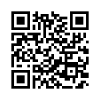Ethical and political implications in 99 Cahaya di Langit Eropa as a travel literature
Abstract
This study aims to show the hidden agenda in the 99 Cahaya di Langit Eropa as a travel literature. The method used is divided into two, namely data collection methods and data analysis methods. The data in this study are in the form of statements about the content, nature, characteristics, condition of something or symptoms, or statements about the relationships between something and something else. Data analysis methods used in this study are historical methods, comparisons, and logical inference. This research shows that the 99 Cahaya di Langit Eropa has ethical and political implications which are the fundamental agenda in travel stories. The ethical implications of this novel are first, by demeaning Indonesia, this novel follows the ethical violations committed by Western orientalism. Second, by demeaning the West, this novel also commits the same ethical violation, namely demeaning other nations. The political implication of this novel is an attempt to free oneself from the hegemony of colonial orientalism, to elevate the dignity of the colonized nation. The answer to liberation offered to Indonesia is a typical answer given by Indonesian Muslim scholars, namely by making Indonesia an Islamic country that is Western and Islamic West. Indonesia is understood as a nation that still must be westernized and at the same time Muslimized.
Keywords: ethical implications, political implications, travel literature, West, Islam
Keywords
Full Text:
PDFReferences
Faruk. (2012). Metode Penelitian Sastra Sebuah Penjelajahan Awal. Yogyakarta: Pustaka Pelajar.
Ferdiansyah. (2017). Nilai profetik dan pendidikan islam humanistik dalam novel 99 cahaya di langit Eropa karya Hanum Salsabiela Rais dan Rangga Almahendra: kajian semiotik dan relevansinya dalam pembelajaran sastra indonesia di SMA. Jurnal Linguistik dan Sastra. 2(1). https://journals.ums.ac.id/index.php/KLS/article/view/5352/3534
Hasibuan, Nur’aini Luciana, Tuti Herawati, Hanina. (2020). Analisis nilai-nilai religius dalam narasi film 99 cahaya di langit Eropa karya Hanum Salsabiela Rais dan Rangga Almahendra. Jurnal Komunitas Bahasa 8 (1) (2020): 23—31. DOI: https://doi.org/10.36294/jkb.v8i1
Heryanto, A. (2015). Identitas dan kenikmatan: politik budaya layar Indonesia. Diterjemahkan oleh Eric Sasono. Jakarta: Kepustakaan Populer Gramedia.
Mashlihatin, A. (2015). Penggambaran dunia dalam novel perjalanan 99 cahaya di langit Eropa. Jurnal Poetika 3(1). https://doi.org/10.22146/poetika.v3i1.10427
Pratt, M. L. (2008). Imperial eyes: travel writing and transculturation. London and New York: Routledge.
Said, E. W. (1985). Orientalisme. Bandung: Penerbit Pustaka.
Salsabiela, H. & Almahendra, R. (2011). 99 cahaya di langit Eropa perjalanan menapak jejak islam Eropa. Jakarta: Gramedia.
Sasono, E. (2011). Film-film Indonesia bertema Islam dewasa ini: jualan agama atau islamisasi? In Cheng, K. G. dan Barker, T. (Ed.). Mau Dibawa Kemana Sinema Kita? Beberapa Wacana Seputar Film Indonesia. Jakarta: Penerbit Salemba Humanika.
Thompson, C. (2011). Travel writing. London and New York: Routledge.
DOI: https://doi.org/10.21831/diksi.v30i2.61819
Refbacks
- There are currently no refbacks.

This work is licensed under a Creative Commons Attribution-ShareAlike 4.0 International License.
Jurnal Diksi is published by Faculty of Languages, Arts, and Culture, Universitas Negeri Yogyakarta. It is licensed under a Creative Commons Attribution-ShareAlike 4.0 International License. Based on a work at http://journal.uny.ac.id/index.php/diksi
Our Journal has been Indexed by:
Diksi Journal is published by the Faculty of Languages and Arts Universitas Negeri Yogyakarta in collaboration with Himpunan Sarjana Kesusasteraan Indonesia (HISKI)
Supervised by:





2.png)










